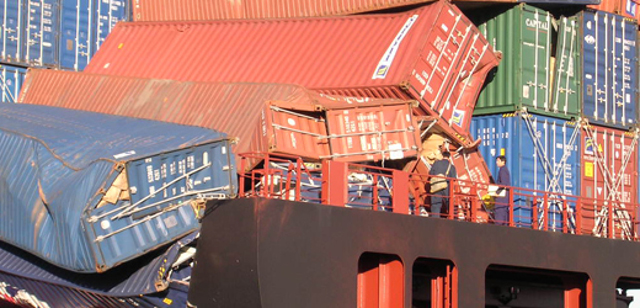The Tokyo, Black Sea and Indian Ocean MOUs have announced they will be carrying out simultaneous concentrated inspection campaigns on cargo securing arrangements from 1 September, 2016, to 30 November, 2016.
The purpose of the campaigns is to verify that procedures and measures in place for cargo securing arrangements meet the applicable requirements of the SOLAS Convention and related guidelines. In addition, Tokyo MOU is seeking to raise awareness of safe practices for cargo securing and the hazards associated with cargo securing.
Port state control officers (PSCOs) will use a version of this questionnaire* developed by Tokyo MOU, containing 10 questions designed to confirm familiarity with cargo securing arrangements and equipment, and knowledge of the hazards associated with cargo securing.
If a deficiency is found, actions by the port state may vary from recording a deficiency and instructing the master to rectify it within a certain period of time, to detention of the ship until serious deficiencies have been rectified. Any detention will be published in the relevant MOU’s monthly detentions lists.
The results of the campaigns in each region will be analysed and findings will be submitted to the relevant MOU Committee for submission to the International Maritime Organization.
*Note: the Indian Ocean MOU questionnaire contains a shorter version of the footnote to questions 2A and 2B. This does not make it clear that the Cargo Safe Access Plan (CSAP) required in the MSC/1/Circ.1353/Rev.1 guidelines only applies to ships whose keels were laid, or were at a similar stage of construction, on or after 1 January, 2015. The Indian Ocean MOU Secretariat has advised that an appropriate note will be added to the CIC guidance prepared for PSCOs.
Source: Lloyd Register

